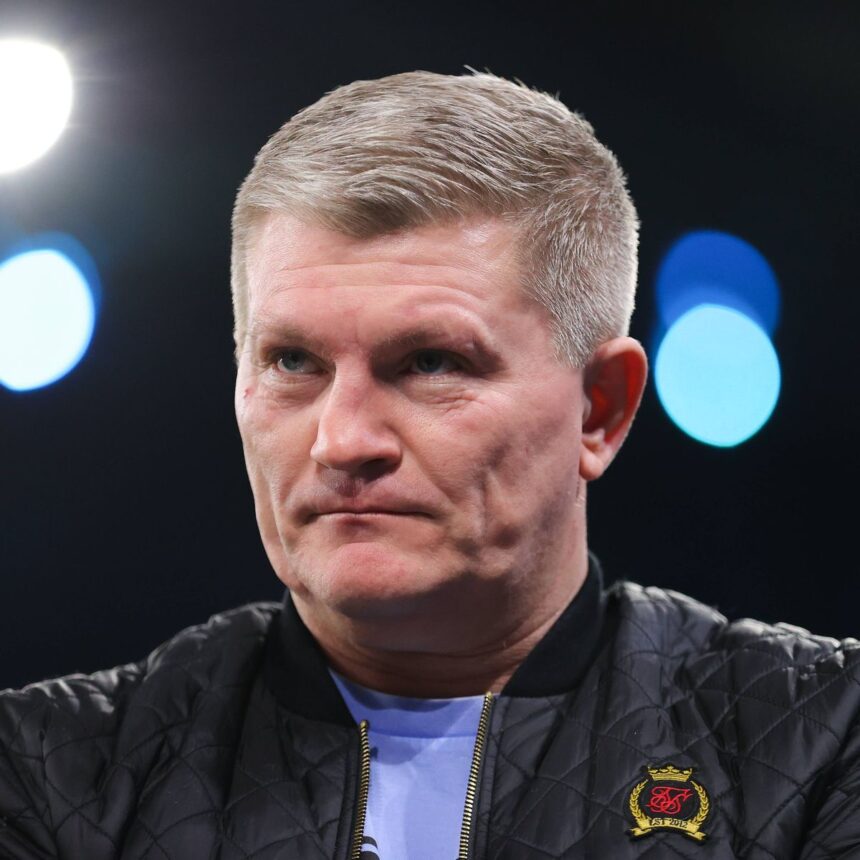The raw sting of loss hit Manchester like a left hook on Thursday, as an inquest peeled back the curtain on the final days of Ricky Hatton, the blue-collar brawler who became Britain’s beating heart in boxing. At just 46, the former world champion—known forever as “The Hitman”—was found hanged in his £1.7 million Hyde home on September 14, his manager Paul Speak stumbling into a nightmare that no one saw coming. It was a whisper-quiet hearing in Stockport Coroner’s Court, over in under 10 minutes, but the echoes? They’re shaking the soul of a city that adored him, reminding us how even the toughest fighters can crumple under shadows we never spot.
Senior coroner Alison Mutch laid it out stark: Provisional cause of death, hanging. No suspicious circumstances, police confirmed—just a profound, private unraveling for a man who’d slugged it out with giants like Floyd Mayweather and Manny Pacquiao, only to battle demons far meaner in the quiet after the bell. Speak, who’d been in Hatton’s corner for 25 years, arrived that fateful Sunday morning to whisk him to Manchester Airport for a Dubai flight—part of the hype for Hatton’s planned comeback bout against Eisa Al Dah on December 2, his first pro scrap in 13 years. No answer at the door. He let himself in and found Hatton unresponsive, a ligature around his neck. Emergency calls, paramedics rushing—too late. Pronounced dead on the scene.
Family saw him last on September 12, chatting like old times, “appeared well,” no red flags waving. The next day, though? Hatton ghosts a scheduled event, the kind of no-show that nags at you. By Sunday, the silence turned deafening. Coroner’s officer Alison Catlow walked the court through it all, her words measured but heavy—Hatton, the lad from Hattersley who rose from pub scraps to IBF and WBA gold at light-welterweight and welterweight, gone in a blink.
This isn’t just a boxer’s tale; it’s Manchester etched in sweat and songs. Hatton, born 1978 in a gritty corner of Greater Manchester, turned pro in 1997 and never looked back—48 wins, five losses, a swarm of fans chanting “There’s only one Ricky Hatton” like a hymn. That 2007 Mayweather megafight in Vegas? He lost, sure, but the electric atmosphere, the post-fight Vegas bender that spiraled into addiction—it marked the start of a rough road. Retirement in 2009, a comeback KO’d by Vyacheslav Senchenko in 2012, then the real fights: Booze, coke, clinical depression. Hatton owned it all publicly, checking into rehab in 2010 and 2013, even attempting suicide once, as he bared in raw interviews. “I was like a runaway train,” he’d say, voice cracking, but always bouncing back with that trademark grin, mentoring his son Campbell, a rising pro, and belting Oasis tunes at City matches—his ring-walk anthem, “Blue Moon,” a nod to the blue half of Manchester he bled for.
Thousands lined Hyde’s streets for his funeral last week, a sea of scarves and tears snaking to Manchester Cathedral. Liam Gallagher, Tyson Fury, Wayne Rooney—legends in their lanes—filed in, while Hatton’s brother and son shouldered the blue casket, Campbell’s eulogy gutting the room: “Never has a father and son had so much in common.” Speak, pallbearer and family rep at the inquest, sat stone-faced as it adjourned to March 20, 2026, for the full probe—witnesses, evidence, closure that feels miles off.
Hatton’s story? It’s the flip side of glory—the roar of crowds fading to echoing rooms, where vulnerability creeps in. He’d been gearing up for that Dubai return, a shot at rewriting the script, but life’s hooks land low. For mates like me who’ve swapped pints with fans mourning at his local, it’s a gut-check: Check on your fighters, the ones smiling through the hurt. Samaritans at 116 123, or text 85258 in the UK—lines open, no judgment.




